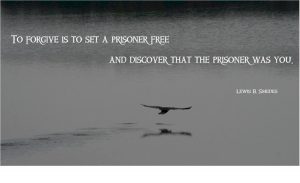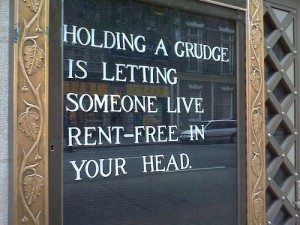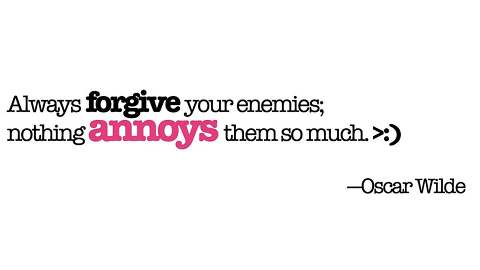We all feel anger and hatred at different times, and at different people. Whenever something doesn’t go according to our expected response, or there is an unexpected event like an accident or death of a loved one, the normal human response is to feel anger and hatred towards a person or community. It might also show as resentment towards life in general.
Anger and hatred are emotions which occurs in different intensities on different situations. The anger at someone who just jumped a signal in front of you is different from the anger at someone who just pick pocketed you. Similarly, the anger of being cheated by a loved one or a business partner is different from the anger you might feel towards a man who kills your son or daughter.
According to me, there is nothing unnatural in getting angry and hating someone. It is very human to do so. Shouting, hurting or just blaming somebody else temporarily makes one feel calmer and less stressed. It justifies our own actions and makes us prove the other person wrong. But it is only as temporary as the relief provided by drugs or alcohol. If you must have observed, people who get angry once often tend to get angry again at different people and situations. Venting their anger on someone becomes like a relief or stress reliever.

Forgiveness gives freedom
As with all addictions, being angry at somebody is like throwing hot coal on the other person with your bare hands. As Mark Twain rightly remarked, anger is an acid that can do more harm to the vessel in which it is stored than to anything on which it is poured. But yet everybody does it. Why? Because we are unaware (knowingly or unknowingly) of the fact that it harms us, just as an alcoholic or a drug addict is unaware (or choses not to see) the harmful effects of them. Anger is more like a trap that keeps us from living and keeps our mind occupied in something that happened in the past. I have seen many people who have continued to hate others even after the other party is dead or suitably punished by law for their misdeeds. By hating, they are drinking poison hoping that the other person will suffer!
So what must, and what can one do? It would be simple to say that we can control our anger and forgive. Yes, we must forgive our wrong doers and move on with life. We must realize that it’s part of the game. But if it would be so easy, I would not have been writing this article. Forgiveness means different things to different people. Forgiveness is very personal and it is more of a choice, a tough one, and it takes a big man to forgive. It is also a journey, and not an one off event or gesture. We can forgive small or big acts, against a person or a group. It is not acceptance, but a gift from one individual to the other, and to himself.
But there is a time for acceptance and forgiveness. If someone were to murder a loved one of yours, no-one will expect you to forgive that person right away. Soon after an event, a person is in shock. But after a few months, you can forgive if you choose to. By forgiving others, we can be at peace and feel freedom from the trap. It allows us to move on with life and make the best of it. Past events can not make an impact on your future post forgiveness.
There have been many stories of how people have forgiven and loved the people who have harmed them and against whom they have felt anger at one point of time. These stories show us what all is possible, and how big is the human heart, if we give it a chance. It is not easy, and it requires a lot of courage to forgive someone whom you are angry at. It is a brave choice, and it needs a brave man to take that choice. I will end with a quote by Mahatama Gandhi –
“The weak can never forgive. Forgiveness is the attribute of the strong.”
Extra – Let me tell you about a twenty six year old American woman Amy Biehl, who was murdered in South Africa in 1993. Four men were sentenced to 18 years in prison for the crime, but later they pleaded for amnesty which the family of Amy supported by letting go of their anger and hurt. Not only that, the family started the Amy Biehl foundation in South Africa to carry on Amy’s work and even gave jobs to two of Amy’s killers, after their release from prison in 1998. May we all have the reservoir of forgiveness which Amy’s family has shown. And in the words of Amy’s father, Peter Biehl, “It just absolutely sets me free”. Read the full story here.




